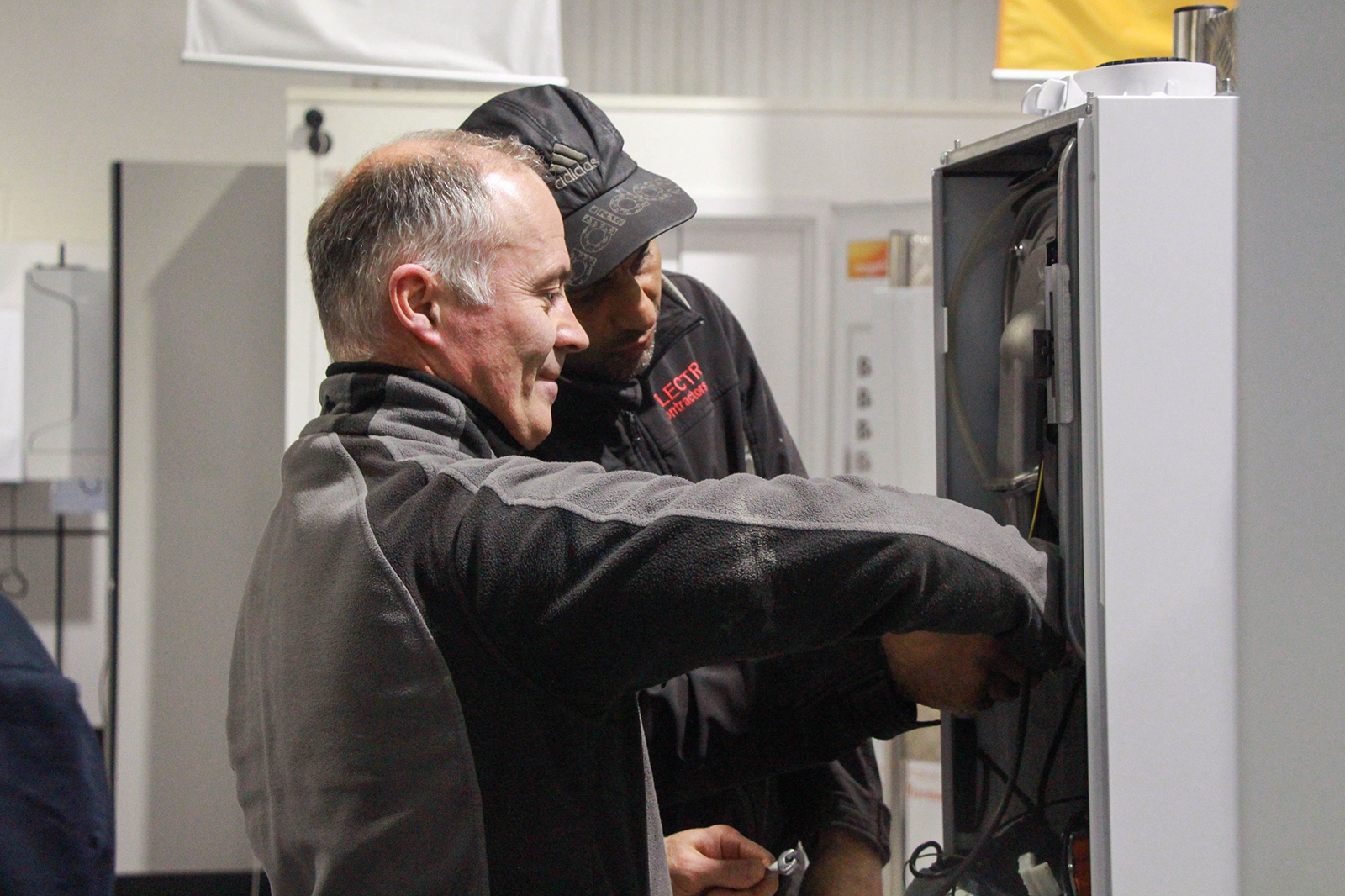
As heating technology advances in view of a low carbon future, it’s important to provide ongoing training for installers while equally supporting younger generations entering the industry. Steve Owen, National Training Manager at Baxi Heating, discusses how relevant training opportunities will play a key role in facilitating the energy transition process.
With domestic heating accounting for 14% of UK emissions, decarbonising the sector is an immediate priority for achieving Net Zero goals. To implement low carbon technologies however, it is vital that the heating industry develops the skills of future generations and upskills the current installer base. This will play an instrumental role in bridging the skills gap and meeting national targets.
Progressive training
Maintaining and expanding skillsets is essential for every installer, and there must be a broad range of training in place to cover relevant topics for personal development, especially as the market continues to evolve with the introduction of low carbon and energy efficient systems.
Heating engineers can benefit from new product introductions, as well as specialist training courses for renewable technologies through Baxi’s schemes. Spanning from HIU training for heat networks through to air source heat pump applications, installers have the opportunity to enhance their portfolio based on emerging trends and market need.
Implementing courses that both preserve and upskill an installer’s capabilities, is a key focus internally and externally. To ensure its own engineers receive ongoing support, Baxi is providing basic courses that include learning vital skills around electrical safety and open vent heating systems, alongside specific product training.
Highlighting the growing importance of low carbon solutions, multi-staged training is also being considered across the business to ensure a high level of understanding in new technology areas. This training will serve as extension of the current technical courses and accreditations provided to gas engineers.
Underlining service
Alongside all technical aspects of work, interacting with customers in the right manner is a vital element of providing quality-assured service. It’s necessary to recognise the bespoke needs and situations of all customers as an intrinsic part of service, especially as installers look to instil confidence in consumers about the future of new technologies.
In line with its business strategy of customer intimacy, Baxi enrols its engineers in service training that includes role-play scenarios to thoroughly prepare them for real-life circumstances. This allows them to better understand clients and navigate conversations around bespoke heating solutions both now and in the future.
Flexible learning
Since the pandemic, we’ve seen an unprecedented appetite for virtual training, and this has enabled the diversification of training programmes. Many courses now offer digital or blended options of both hands-on and online learning. Digital resources are also available in a range of formats including informative videos, as well as livestreamed demonstrations. Livestreams are particularly effective for allowing participants to interact and ask questions in a similar fashion to a classroom environment.
While versatile virtual learning options increase the accessibility of training for many across the UK, as restrictions ease, demand has grown for the return of face-to-face learning.
Acknowledging the value of such, Baxi has ensured that its training centres in Dartford and Warrington offer a diverse range of face-to-face courses for installers, to maximise hands-on learning experience.
As well as these training centres, which have remained open throughout the pandemic, Baxi is opening a dedicated training centre at its Brooks House HQ in Warwick. This will offer basic training courses, as well as training for new technologies such as air source heat pumps.
Future generations
While upskilling installers will be instrumental for low carbon applications, nurturing the younger generation is vital for closing the skills gap and futureproofing the industry.
With this in mind, Baxi launched its apprenticeship scheme last year and is looking to double its intake this year. The five apprentices taken on in 2021 are currently learning through a mixture of college-based practical and theory training, along with hands-on experience accompanying Baxi engineers on the job. This has allowed deeper insight into the servicing role as they regularly observe qualified engineers at work. For example, Madison Dowding, an apprentice currently enrolled in the Baxi scheme, recently said that: “Accompanying the engineer means I’m always able to learn new things, which is an enjoyable feeling. I can look back and feel really proud of how far I’ve come through my training.”
Younger individuals are eager to learn and develop their skills, which will play a significant role in adopting renewable heating technologies. Joseph Dowse, another trainee on the apprenticeship scheme said: “Future-wise, what I’m focused on is occupying a servicing role, but also learning about emerging technologies as a new possibility. There’s massive change occurring at the moment and a growing need for engineers, so it’s a good time to enter the heating industry and develop my career”. I couldn’t have said it better myself, and as we look to the future, we’re keen to diversify our apprenticeship offering to ensure we’re looking after the next generation of engineers.













